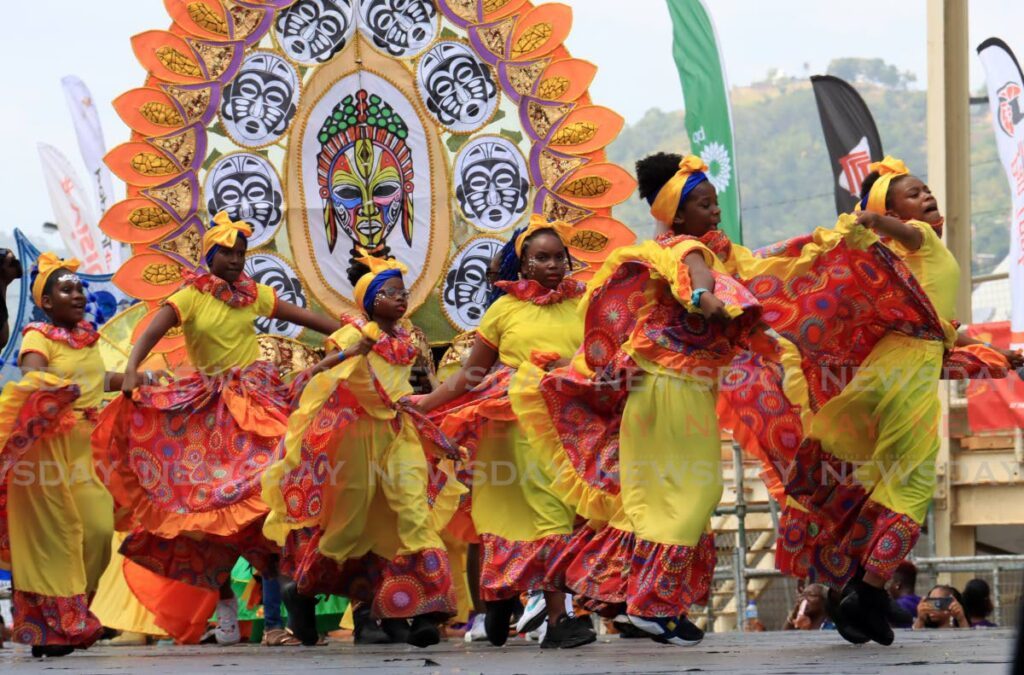Empowering Carnival: Encouraging continued government, private sector investment

LUKE EDWARDS
Trinidad and Tobago Carnival is much more than a colourful celebration; it is a cultural exhibition involving a wide array of stakeholders. Who are the stakeholders of this Carnival? The stakeholders include the Government, private sector, Trinidadian/Tobagonian diaspora, cultural ambassadors and, most importantly, the people of TT. As a result the Government and private sector firms should continue to support Carnival due to its significant impact on the country's economy and cultural heritage.
The Carnival season serves as a vital component of the nation's tourism industry, attracting visitors from around the globe and contributing substantially to the local economy. By providing funds, infrastructure and logistical support, the public sector ensures the smooth execution of the festival. The private sector aids by providing corporate social responsibility programmes, sponsorships and investments in various cultural events. It is through their continued support that the TT Carnival can thrive as a globally recognised cultural extravaganza and a key contributor to the country's economic prosperity.
According to research, more than 33,000 visitors travelled to TT annually for Carnival from 2010 through 2020. In 2023, the number of Carnival visitors increased to over 27,000, representing a substantial 210 per cent increase from the previous post-covid19 pandemic year. This surge in tourism contributed to a total revenue of approximately $420 million (US$62 million) spent by visitors during the Carnival period in 2023. Despite variations in visitor numbers and expenditure over time, the data indicates that Carnival remains a major driver of tourism and economic activity in TT.
The Trinidadian/Tobagonian diaspora not only acts as a cultural bridge for Carnival, but also brings significant economic benefits to the festival. The Government and private sector can assist the diaspora entrepreneurs in leveraging their cultural connections and expertise to enhance the profitability of Carnival. By fostering business partnerships with local enterprises and investing in Carnival-related ventures, they can contribute to the festival's economic success.
Providing platforms for marketing Carnival-related merchandise and services, along with financial support, grants and business development programmes, can empower the diaspora to grow their Carnival-related businesses effectively. Through their advocacy and promotion of Carnival within their respective communities, the Trinidadian/Tobagonian diaspora plays a key role in driving international tourism and visitor participation in the TT Carnival.
Cultural ambassadors play a crucial role in safeguarding and promoting the diverse traditions and heritage of Carnival. The Government and private sector can support cultural ambassadors in translating their Carnival art into sustainable financial returns. The Government can offer funds and grants to nurture the creative endeavours of cultural ambassadors, allowing them to produce high-quality artistic expressions and Carnival performances.
On the other hand, the private sector can engage in sponsorship and partnerships, offering financial support in exchange for promotional opportunities and association with the ambassadors' art form. By leveraging government and private sector support, cultural ambassadors can expand their reach, attract patrons, and effectively market and promote their art form.
Providing resources such as performance venues, production facilities and marketing platforms can further empower cultural ambassadors to showcase their talents effectively while generating financial returns. Cultural ambassadors’ efforts contribute to raising international awareness and appreciation of the festival, drawing visitors from around the world.
The people of TT are the lifeblood of the Carnival, playing an essential role in its vibrancy and success. Our creativity and craftsmanship bring the Carnival to life, and the Government and business sectors can play a role in helping us seize the economic opportunities presented by Carnival, thereby contributing to our financial well-being. This assistance can take the form of providing financial aid, training programmes and resources to support small enterprises, craftsmen and vendors participating in Carnival-related economic activities.
Additionally, creating marketplaces, entertainment spaces and artisanal hubs can offer locals opportunities to showcase their talents and products during Carnival. Also provide platforms and support for local companies and entrepreneurs to market and promote Carnival-related goods and services locally and internationally. As well as offering financial incentives, grants or business development programmes can empower local entrepreneurs to establish Carnival-related ventures.
Throughout the year, Carnival serves as a major employer, bolstering cultural tourism and entertainment. Approximately 80 Trinidad-style carnival events occur globally, providing incomes for local artists. The dynamic cultural spectacle of Carnival relies on a diverse array of stakeholders for its success and influence.
The financial and logistical support from the Government and private sector, the preservation of heritage by cultural ambassadors, the advocacy of the Trinidadian/Tobagonian diaspora, and the active engagement of the local community all contribute to the festival's economic and cultural significance. Carnival remains integral to TT's identity, fostering global connections and upholding the nation's rich history of innovation, diversity and vitality, while evolving to attract audiences worldwide.

Comments
"Empowering Carnival: Encouraging continued government, private sector investment"